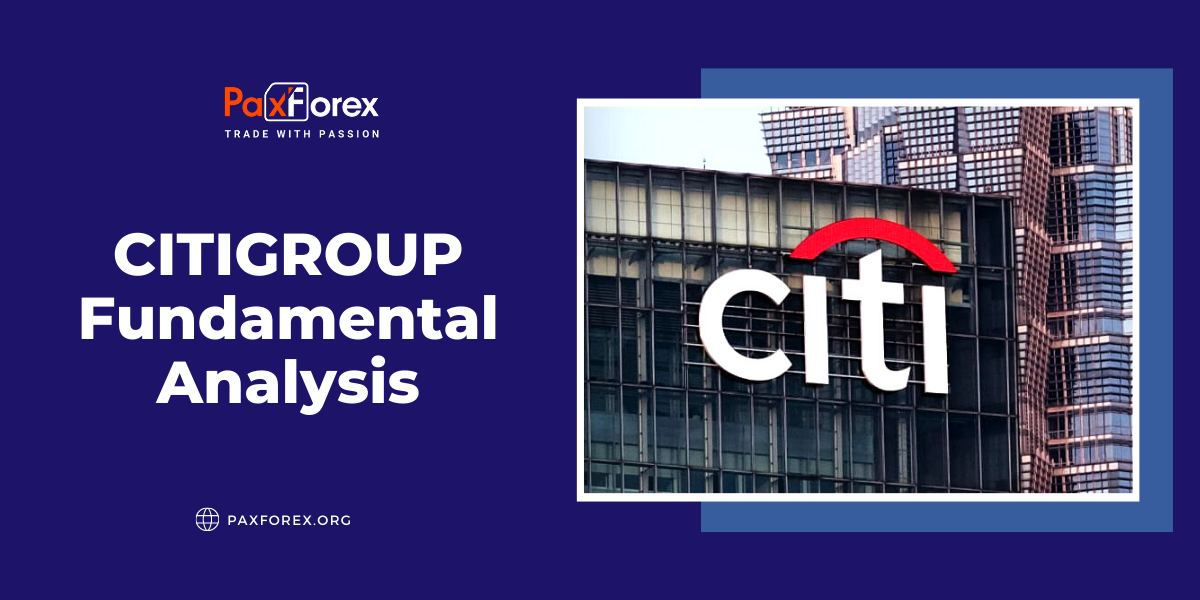
Source: PaxForex Premium Analytics Portal, Fundamental Insight
Major multinational bank Citigroup generally reported solid Q3 financial results as it was boosted by higher interest rates and continued to make progress on its multi-year transformation plan.
But the weak spot in the quarter was the bank's investment banking business, whose earnings fell sharply YoY after impressive results last year.
No doubt, the whole investment banking industry is having issues right now, though Citi seems to be struggling more than its counterparts. Let's take a look at why that might be the case and whether investors should be worried.
There are three main areas within investment banking: mergers and acquisitions (M&A) advisory, equity underwriting, and debt underwriting.
M&A advisory is basically much what it sounds like helping companies purchase a business or sell it. Equity underwriting is concerned with helping companies make money with the help of events such as initial public offerings (IPOS). Debt underwriting is about helping companies raise capital through different debt instruments, such as bonds or certain types of financial promissory notes.
This has been a tough year for all of these companies, not only because of the comparison to last year but also due to the explosive market situation have hit these companies hard.
Interestingly, JPMorgan Chase Chief Operating Officer Daniel Pinto stated at a conference last month that the size of the wallet in investment banking (the total amount of available investment banking fees) has also been very variable within the last several years. Pinto noted that two years ago, wallet size was $79 billion, which was within the norm for the previous decade. Wallet size then rose to $95 billion in 2020 and $123 billion in 2021. Still, in 2022 Pinto anticipates it to be only $69 or $70 billion.
Looking at some of Citigroup's major competitors, it's clear that the bank is facing a larger decline in investment banking in 2022 than it did in 2021.
Citigroup showed the smallest decline among its rivals in M&A advisory, but it showed the largest cumulative decline in equity and debt underwriting.
After the analyst`s question about those low numbers in a recent earnings call, Citi CFO Mark Mason said that the decline in debt underwriting activity "is really more a function of low deal volume across almost all lines of business. And there's really nothing special about it."
Investment banking revenues are hard to predict and can fluctuate a lot, while Citigroup has a smaller investment banking business than most of its competitors, reasonably making it somewhat more volatile.
However, Mason said investment banking would be part of the bank's plan going forward. He also said the bank is indeed recruiting for this division, and management enjoys the improvement it is seeing from the new hires.
While it's not pleasing to see Citigroup lagging behind its peers in investment banking, specifically if it will be part of the bank's strategy in the coming years, we should not be too concerned about it now, considering the sluggish and volatile environment. Nevertheless, it is worth watching in future quarters to see if Citigroup will continue to lag behind its industry peers.
As long as price is below 48.00, follow the recommendations below:
- Time frame: D1
- Recommendation: short position
- Entry point: 44.14
- Take Profit 1: 39.91
- Take Profit 2: 35.00
Alternative scenario:
If the level of 48.00 is broken-out, follow the recommendations below:
- Time frame: D1
- Recommendation: long position
- Entry point: 48.00
- Take Profit 1: 51.00
- Take Profit 2: 54.00













